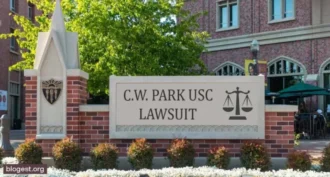The Essential Guide to Conveyancing Lawyers in Sydney
- 1 The Essential Functions of Conveyancing Lawyers
- 1.1 1. Preparing and Reviewing Contracts:
- 1.2 2. Conducting Property Searches:
- 1.3 3. Ensuring Compliance with Local Laws:
- 1.4 4. Managing the Settlement Process:
- 2 Navigating Local Regulations and Compliance
- 2.1 1. Local Council Requirements:
- 2.2 2. Heritage Property Restrictions:
- 2.3 3. Environmental Regulations:
- 3 Ensuring Transparency and Clarity in Transactions
- 4 Handling Financial Transactions
- 4.1 1. Secure Transfer of Funds:
- 4.2 2. Preventing Financial Discrepancies:
- 4.3 3. Compliance with Financial Regulations:
- 5 Communication and Coordination
- 6 Ongoing Support and Advice
- 7 The Importance of Engaging a Conveyancing Lawyer
- 8 Conclusion
Purchasing or selling property is a significant financial transaction involving many legal and administrative tasks. In Sydney, as in many other parts of the world, the services of a conveyancing lawyer are indispensable to ensure that these transactions are executed smoothly and legally. Conveyancing lawyers in Sydney specialize in transferring real estate ownership from one party to another, safeguarding their client’s interests and ensuring compliance with all legal obligations. Understanding the role and functions of conveyancing lawyers is crucial for anyone involved in property transactions, whether as a buyer, seller, or investor.
The Essential Functions of Conveyancing Lawyers
Conveyancing lawyers play a pivotal role in the property market by handling the legal aspects of buying and selling property. Their responsibilities are multifaceted and include:
1. Preparing and Reviewing Contracts:
Conveyancing lawyers draft and review contracts to ensure all terms are fair and legally binding. They provide the contract that protects their client’s interests and includes all necessary conditions, such as financing arrangements and contingencies.
2. Conducting Property Searches:
Before finalizing a transaction, it is crucial to perform thorough property searches. These searches can reveal critical information about the property, such as existing encumbrances, easements, and any legal disputes. Conveyancing lawyers conduct these searches to ensure that the property is free from undisclosed issues that could affect its value or usability.
3. Ensuring Compliance with Local Laws:
Property transactions are subject to various local laws and regulations. Conveyancing lawyers ensure that all legal requirements are met, including zoning laws, building codes, and environmental regulations. Their expertise is precious in areas with complex legal frameworks, such as heritage-listed properties or those subject to environmental protection laws.
4. Managing the Settlement Process:
Settlement is the final stage of a property transaction, where the buyer and seller formally exchange titles and complete the financial transaction. Conveyancing lawyers manage this process, ensuring that all conditions of the sale are met and that the transfer of ownership is executed without any issues.
Navigating Local Regulations and Compliance
Sydney’s property market is subject to a range of local regulations that can significantly impact property transactions. These regulations can vary widely between different councils and suburbs, making it essential to have a conveyancing lawyer who understands the local legal landscape.
1. Local Council Requirements:
Each local council in Sydney may have its own set of requirements for property transactions. These can include specific documentation, permits, and approvals. Conveyancing lawyers ensure that all these requirements are met, preventing legal issues that could delay or derail the transaction.
2. Heritage Property Restrictions:
Sydney has many heritage-listed properties that are subject to stringent regulations to preserve their historical significance. Conveyancing lawyers help navigate these regulations, ensuring that any renovations or changes to the property comply with heritage guidelines.
3. Environmental Regulations:
Environmental considerations are increasingly crucial in property transactions. Conveyancing lawyers ensure compliance with environmental laws, such as those protecting endangered species or requiring sustainable building practices. This is particularly important for properties located near environmentally sensitive areas.
Ensuring Transparency and Clarity in Transactions
One of the primary roles of a conveyancing lawyer is to ensure transparency and clarity throughout the property transaction process. This involves:
1. Clear Documentation:
Conveyancing lawyers ensure that all legal documents are clear and understandable. They translate complex legal language into terms their clients can easily comprehend, ensuring they fully understand their rights and obligations.
2. Preventing Disputes:
Clear and transparent documentation helps prevent disputes between buyers and sellers. By ensuring that all terms and conditions are explicitly outlined and agreed upon, conveyancing lawyers reduce the risk of misunderstandings that could lead to legal conflicts.
3. Educating Clients:
Conveyancing lawyers also educate their clients about the legal aspects of the transaction. They advise on potential risks and legal implications, helping clients make informed decisions. This is particularly valuable for first-time buyers or sellers who may not be familiar with the complexities of property law.
Handling Financial Transactions
Financial transactions are a critical component of property conveyancing. Conveyancing lawyers play a vital role in managing these transactions to ensure they are conducted securely and accurately.
1. Secure Transfer of Funds:
Conveyancing lawyers oversee the transfer of funds between buyers and sellers. They hold client funds in trust until all conditions of the sale are met, ensuring that the transaction proceeds smoothly and securely.
2. Preventing Financial Discrepancies:
By managing the financial aspects of the transaction, conveyancing lawyers help prevent discrepancies and ensure that all parties fulfil their monetary obligations. This includes verifying that all payments, such as deposits and settlement amounts, are made correctly.
3. Compliance with Financial Regulations:
Property transactions are subject to various financial regulations, including anti-money laundering and tax reporting. Conveyancing lawyers ensure compliance with these regulations, protecting their clients from legal issues related to financial transactions.
Communication and Coordination
Effective communication and coordination are essential to the success of any property transaction. Conveyancing lawyers act as intermediaries between the parties involved, ensuring everyone is on the same page.
1. Mediating Between Parties:
Conveyancing lawyers mediate between buyers, sellers, real estate agents, and lenders. They facilitate communication and address any issues or concerns during the transaction.
2. Coordinating Documentation:
The conveyancing process involves a significant amount of documentation, including contracts, title deeds, and financial statements. Conveyancing lawyers coordinate the preparation and exchange of these documents, ensuring that all legal requirements are met.
3. Ensuring Timeliness:
Timely completion of property transactions is crucial to avoid delays and additional costs. Conveyancing lawyers manage the timeline of the transaction, ensuring that all necessary steps are completed on schedule.
Ongoing Support and Advice
Conveyancing lawyers provide ongoing support and advice to their clients, extending beyond the immediate needs of the property transaction.
1. Future Legal Issues:
Conveyancing lawyers can advise clients on potential future legal issues related to the property. This includes matters such as property disputes, boundary issues, and changes in zoning laws.
2. Tax Implications:
Property transactions can have significant tax implications. Conveyancing lawyers provide advice on tax-related matters, helping clients understand their obligations and plan for potential tax liabilities.
3. Planning for Future Transactions:
For clients who may be considering future property transactions, conveyancing lawyers offer guidance on long-term planning. This includes advice on property development, investment strategies, and potential resale considerations.
The Importance of Engaging a Conveyancing Lawyer
Engaging a conveyancing lawyer is essential for anyone entering the property market in Sydney. These legal professionals ensure that property transactions are conducted legally, efficiently, and professionally. By offering expert legal advice, managing financial details, and coordinating between various parties, conveyancing lawyers help streamline the process of buying or selling property.
For buyers, conveyancing lawyers provide peace of mind by ensuring that the property is free from legal issues and that the purchase complies with all relevant laws. For sellers, they ensure that the sale proceeds smoothly and that all legal obligations are met. Overall, the expertise and support of a conveyancing lawyer are invaluable in navigating the complexities of the property market.
Conclusion
The role of conveyancing lawyers in Sydney’s property market cannot be overstated. Their expertise in handling the legal aspects of property transactions ensures that buyers and sellers can navigate the process with confidence and ease. From preparing and reviewing contracts to managing financial transactions and ensuring compliance with local regulations, conveyancing lawyers provide comprehensive support and guidance. Their efforts in maintaining transparency, preventing disputes, and offering ongoing advice make them indispensable allies in the property market. Whether buying, selling, or investing in property, engaging a conveyancing lawyer is crucial in ensuring a successful and legally sound transaction.


















